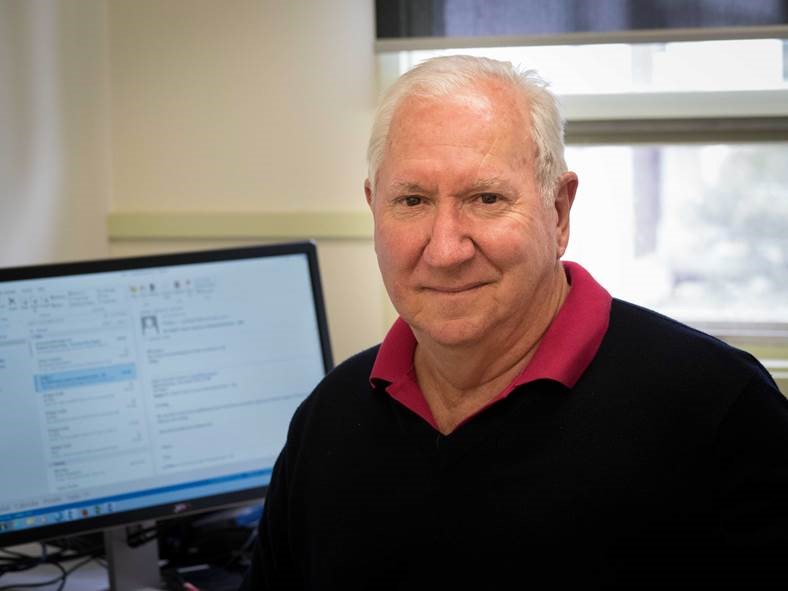You don’t have to spend long talking to Professor Chris Sharpley, leader of the Brain Behaviour Research Group, to realise how passionate he is about his research. Chris’s major research interest is the neurobiology of depression, especially from the perspective of considering depression as a “sickness behaviour” that has an adaptive function.
What that means is that, like many other symptoms of “illness”, such as a runny nose, high temperature, vomiting, and diarrhoea, the symptoms of depression also serve a valuable function for our overall health.
In following this line of research, Chris has been instrumental in collecting biological and psychological data from over 500 New England residents, and is now working towards producing a matrix of genetic, endocrinal, immunological, psychological, behavioural, relational and social correlates of four subtypes of depression, in an effort to enhance current treatment models by focussing them upon specific aspects of depressive symptomatology. Chris is particularly interested in the association between EEG (brain activity) patterns and the different symptoms of depression. He also works closely with the Centre for Autism Spectrum Disorders at Bond University on a large study of anxiety and depression among children and adolescents with Autism Spectrum Disorder (ASD). That study has been very productive and has enabled parents and schools to better understand the behaviour of these young people.
Chris’s passion for his research is driven by his own experiences as a clinician.
I’ve had 35 years of clinical experience and there is still a relative lack of clarity about what depression actually is and why it occurs! That is, most people who are depressed are not “ill” but may instead be dealing with a major stress or demand. Depressive symptoms can have the effect of helping the person behaviourally withdraw from a highly aversive environment—thus, they can be “adaptive”.
Chris has had an interesting and varied career – he started work as a school teacher, then became a clinical psychologist, then an academic. He spent about 20 years working in the research field of psychotherapy effectiveness, and developed a model of the therapist-patient interaction at a micro-level that was used to train counsellors and psychotherapists. In 2004 he retired from his position as the Dean of the Faculty of Health Sciences and Medicine at Bond University and went sailing for two years. He then made the decision to go back to university and retrain as a clinical neuroscientist.
Undertaking a BSc and then an MSc at age 60 was a challenge but it rejuvenated my intellectual curiosity!
Chris enjoys working with a dedicated group of colleagues within the BBRG, each of whom has a particular expertise and each of whom contributes to an overall productivity that wouldn’t be possible if they were working in an isolated way.
In 2010 Chris bought a rundown farm in the New England area, and in his down time he enjoys working to build it up, plant trees and establish a superfine Merino flock that he has bred. He loves sailing of any sort and enjoys getting out on the water whenever he can.
You can find a list of publications, and more information about his teaching and research areas here: https://www.une.edu.au/staff-profiles/science-and-technology/csharple


